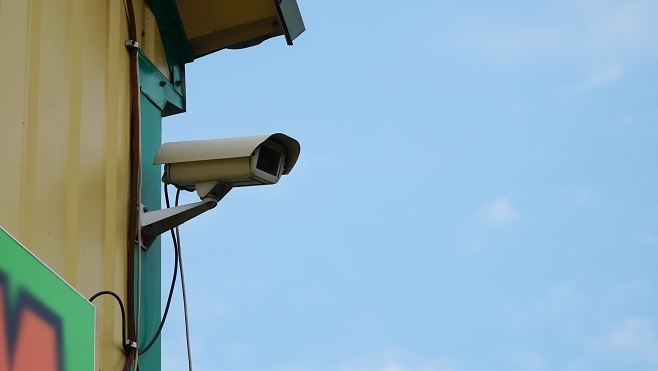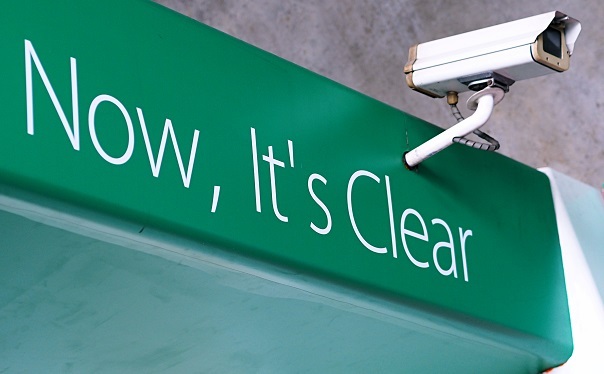
 Data Structure
Data Structure Networking
Networking RDBMS
RDBMS Operating System
Operating System Java
Java MS Excel
MS Excel iOS
iOS HTML
HTML CSS
CSS Android
Android Python
Python C Programming
C Programming C++
C++ C#
C# MongoDB
MongoDB MySQL
MySQL Javascript
Javascript PHP
PHP
- Selected Reading
- UPSC IAS Exams Notes
- Developer's Best Practices
- Questions and Answers
- Effective Resume Writing
- HR Interview Questions
- Computer Glossary
- Who is Who
What is the full form of CCTV?
Introduction
Closed Circuit Television (CCTV) refers to the use of video cameras to capture and transmit signals to a limited set of monitors or screens for surveillance, security, or monitoring purposes in a specific location or area.

CCTV is used in various settings, such as homes, businesses, public spaces, and government facilities, to deter crime, monitor activity, and ensure safety and security.
How does CCTV work?
CCTV works by using video cameras to capture footage of a specific area, which is then transmitted to a set of monitors or screens for viewing and recording. Here's a detailed explanation of how CCTV works
Camera CCTV cameras capture video footage of a specific area or location. These cameras can be either analog or digital and may have different features such as night vision, motion detection, or remote access.
Transmission The video signal from the camera is then transmitted either through a wired or wireless connection to a monitor or recording device.
Recording The video footage may be recorded onto a digital video recorder (DVR), a network video recorder (NVR), or onto cloud-based storage.
Monitoring The recorded footage or live feed from the CCTV cameras is monitored by trained personnel or security personnel.
Playback The recorded footage can be played back for review or analysis at a later time.
CCTV use cases
CCTV has many use cases in various settings, such as homes, businesses, public spaces, and government facilities. Here are some common use cases for CCTV
Security CCTV is commonly used for security purposes to deter criminal activity, identify suspects, and monitor sensitive areas such as banks, museums, and government buildings.
Surveillance CCTV can be used for surveillance purposes to monitor traffic, public spaces, and large events to ensure safety and security.
Workplace monitoring CCTV is often used in workplaces to monitor employee productivity, ensure safety protocols are being followed, and prevent theft or other misconduct.
Traffic monitoring CCTV is commonly used to monitor traffic, identify traffic violations, and improve traffic flow.
Home security CCTV can be used in homes to monitor entry points, deter burglars, and keep an eye on children or pets.
Industrial monitoring CCTV is used in industrial settings such as factories and warehouses to monitor production lines, ensure worker safety, and prevent theft.
CCTV is a versatile tool that can be used for a wide range of applications, providing valuable surveillance and security benefits.
Advantages
CCTV has several advantages that make it a valuable tool for surveillance and security. Here are some of the advantages of CCTV
Deterrence The presence of CCTV cameras can deter potential criminals, making them think twice before committing a crime.

Surveillance CCTV allows for continuous surveillance of an area, providing real- time monitoring and recording of any suspicious activity.
Remote monitoring CCTV can be accessed remotely, allowing for monitoring of an area from anywhere at any time.
Evidence CCTV footage can provide valuable evidence in the event of a crime, helping law enforcement to identify suspects and bring them to justice.
Workplace safety CCTV can be used to monitor workplace safety, ensuring that safety protocols are being followed and that accidents are prevented.
Cost-effective CCTV is a cost-effective way to monitor and secure a specific area, as it reduces the need for on-site security personnel.
Conclusion
In conclusion, CCTV, or Closed Circuit Television, is a valuable tool used for surveillance and security purposes. It works by capturing video footage using cameras, transmitting it to a set of monitors or screens, and recording it for review or analysis. CCTV has many advantages, including deterring potential criminals, providing real-time surveillance, enabling remote monitoring, providing valuable evidence, ensuring workplace safety, and being cost-effective. With its versatility and reliability, CCTV is a crucial tool for maintaining safety and security in various settings, from homes and businesses to public spaces and government facilities.
FAQs
Q1. Is CCTV legal?
Ans: CCTV is legal in most countries as long as it is used responsibly and in compliance with relevant laws and regulations.
Q2. Can CCTV be hacked?
Ans: CCTV can be vulnerable to hacking if proper security measures are not in place. It is important to ensure that your CCTV system is secure and protected against potential cyber threats.
Q3. What is the difference between analog and digital CCTV?
Ans: Analog CCTV uses traditional analog cameras and a DVR to record and store footage, while digital CCTV uses IP cameras and an NVR to record and store footage. Digital CCTV is often considered to be more advanced and offers better image quality and more features.

